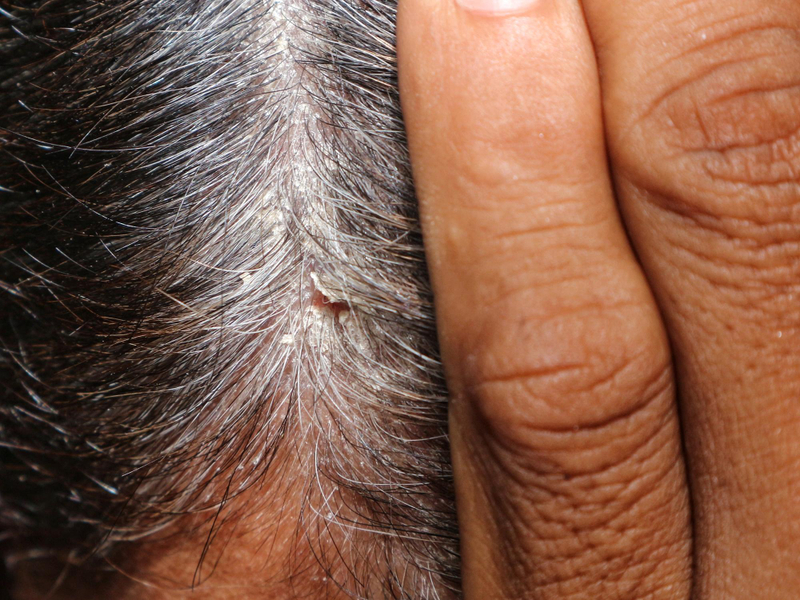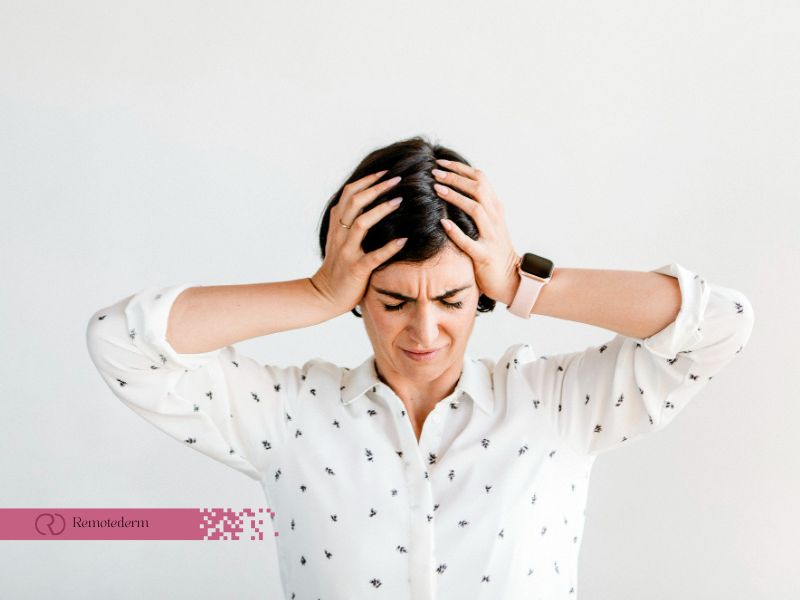If you’ve ever asked yourself, “Why is my scalp painful?” you’re not alone. Scalp pain can hit anyone out of nowhere, and figuring out what’s going on can feel confusing. Let’s dig into what causes scalp pain, common conditions, and how you can tackle it—especially if you’re living in Canada.
What Causes Scalp Pain?
There are plenty of things that could explain why your scalp pain keeps showing up. From irritation caused by daily habits to more serious scalp conditions, understanding the root cause is crucial. Here are the common culprits:
- Hair Products and Styling
Tight hairstyles, heavy products, and excessive heat styling can irritate the scalp.
- Tight ponytails or braids tug on your hair follicles, causing inflammation.
- Hair products with harsh chemicals (like sulfates) can dry out and irritate the scalp.
- Skin Conditions
Scalp issues like eczema and psoriasis often bring on pain, itching, and flaking.
- Eczema can make your scalp itchy, inflamed, and sore.
- Psoriasis may show up as red, scaly patches that hurt when irritated.
- Infections
Bacterial or fungal infections like scalp folliculitis can lead to painful inflammation.
- Folliculitis causes red bumps around the hair follicles.
- Ringworm (tinea capitis) is a common scalp fungus that causes bald spots and soreness.
- Blisters from Sunburn
Did you forget your hat during a sunny day out? Sunburn on the scalp can cause blisters and pain, especially in areas with thin hair coverage.
- Nerve Sensitivity
Scalp pain might also stem from nerve issues, particularly if you have conditions like tension headaches or migraines. In this case, your nerves overreact to stimuli, causing tenderness.
How Scalp Conditions Can Affect Your Pain
Different scalp conditions play a major role in whether or not you’ll feel pain. Let’s explore a few of them to see what might be causing your discomfort.
Eczema on the Scalp
Eczema flares up when your skin barrier gets weak. On your scalp, it can trigger itchiness, redness, and even a burning sensation. Many people in Canada experience this due to cold, dry winters that worsen skin sensitivity.
Psoriasis
Psoriasis happens when skin cells regenerate too quickly, leading to raised, scaly patches. These plaques can hurt, especially if scratched or irritated.
Seborrheic Dermatitis
This condition is tied to an overgrowth of yeast on the scalp and causes greasy, flaky patches. It’s often itchy but can become painful if inflammation worsens.
Scalp Folliculitis
When hair follicles become infected, small red or white bumps appear. They can become tender and filled with pus if not treated early. This condition might need a dermatologist’s input.

Could Lifestyle Be Making Your Scalp Painful?
Sometimes the reason behind “why does my scalp pain” is lifestyle-related. From your haircare routine to stress, a few everyday factors could be triggering your scalp issues.
- Stress and Anxiety
Chronic stress can exacerbate scalp pain, often because it triggers tension headaches or worsens conditions like eczema and psoriasis.
- Hair Care Routine
Overwashing or using products with drying ingredients can mess with your scalp’s natural oils. Similarly, underwashing can lead to product buildup and irritation.
- Climate and Environment
In Canada, the drastic shift between cold winters and humid summers can leave your scalp confused. Dry air in winter pulls moisture from your skin, while heat and humidity promote oil buildup and fungal growth.
How Can You Manage and Prevent Scalp Pain?
You can’t always prevent scalp pain, but you can lower the risk by taking a few precautions. Here’s a breakdown:
Adjust Your Hair Care Habits
- Avoid hairstyles that pull too tightly.
- Use gentle shampoos without sulfates or alcohol.
- Limit heat styling (like blow-drying or straightening).
Moisturize and Protect Your Scalp
Keeping your scalp hydrated can help prevent dryness and eczema flare-ups. Use scalp-friendly oils like argan or tea tree oil, especially in the winter months.
Sun Protection
Always wear a hat or apply SPF on your scalp when you’re outside for long periods, especially during summer in Canada.
Seek Medical Advice
If your scalp pain doesn’t improve after making changes, an online dermatology consultation might help. A dermatologist can diagnose conditions and prescribe treatments tailored to your symptoms.
Should You Try Online Dermatology?
Sometimes, at-home remedies don’t cut it. In those cases, it’s smart to reach out for professional advice. Many people in Canada now use online dermatology services, making it easier to access expert care without leaving home. You can discuss symptoms, get prescriptions, and receive a treatment plan—all through a virtual appointment.
Online consultations can be especially useful for conditions like:
- Persistent scalp pain
- Infections that don’t respond to OTC products
- Severe eczema or psoriasis flare-ups

When to See a Doctor About Scalp Pain
So, when should you stop self-diagnosing and see a doctor? If any of these apply, it’s time to get professional help:
- The pain is intense and doesn’t go away after a few days.
- You notice signs of infection, like pus, swelling, or a fever.
- You have open sores, blisters, or scaly patches that worsen.
- Hair starts falling out around the painful areas.
Final Thoughts
Scalp pain can have many causes, from lifestyle factors to chronic conditions. In Canada, environmental changes and stress might make things worse. By adjusting your haircare routine, moisturizing your scalp, and seeking professional advice when needed, you can take control of your scalp health. Don’t hesitate to reach out for an online dermatology consultation if your symptoms persist. Your scalp deserves just as much care as the rest of your skin!
FAQs
1. Can wearing hats cause scalp pain?
Yes, wearing hats that are too tight can irritate your scalp by putting pressure on the skin and hair follicles. Opt for looser-fitting hats to prevent discomfort.
2. Is scalp pain linked to hair loss?
Sometimes. Conditions like folliculitis and scalp psoriasis can cause both pain and hair loss. Early treatment can minimize the risk of permanent hair thinning.
3. Can poor diet lead to scalp pain?
A poor diet lacking essential nutrients can weaken your skin’s natural barrier. This may make your scalp more prone to irritation and conditions like eczema.
4. Are headaches connected to scalp pain?
Yes, tension headaches and migraines can cause scalp tenderness. The nerves around your scalp can become hypersensitive during these headaches, making the area feel sore.
